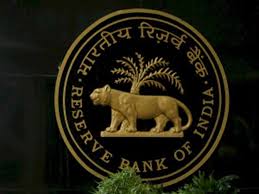 Viacom18, the television media house that owns and runs channels Colors and MTV, has signed an agreement with the Union government’s department of industrial policy and promotion’s Start-Up India project.
Viacom18, the television media house that owns and runs channels Colors and MTV, has signed an agreement with the Union government’s department of industrial policy and promotion’s Start-Up India project.
It will launch a year-long ‘outreach programme’ for entrepreneurs, called MTV Kickstart. The initiative will include activities on-ground, digital communication and a TV reality show.
While the Viacom18 brand attached to the programme is MTV, the network’s youth brand, all entities under the former’s umbrella will be mobilised.
The multi-platform initiative is to reach out to young and aspiring entrepreneurs through multiple touch-points across 300 colleges. Around 10 Start-Up Festivals, two-day events in tier-1 & 2 cities, will be organised, allowing youth to interact with top entrepreneurs and investors.
Amitabh Kant, secretary of the government’s department, said: “This will help us engage with dynamic youth and inspire a new generation to follow their dreams and become successful entrepreneurs.”
“The programme will look at a variety of start-ups — in tech and engineering, in the social space, in art and culture and, could be, in the media, too. We are working on the amount of seed money. It will come from a combination of entities across sponsors and VC (venture capital entities). One of the things we want to do is provide mentorship. It becomes critical in making the ideas commercially viable,” says Sudhanshu Vats, group chief executive of Viacom18.
The reality show will go on air in the third quarter of this calendar year. The format would mostly be developed in-house by the network and include a competition, where shortlisted start-ups or entrepreneurs from various on-ground activities under the programme are to compete before a jury for home seed funding.
“Through a process of auditions, we will shortlist the contestants, who will then be participants in the televised reality show. We’ll end the process with an awards show, also televised. The idea is not to make it too formal and intimidating. The MTV brand will help with this. While it’s not frivolous, it will help ease the contestants. It can be quite intimidating for anyone with an idea who does not know much about setting up a business (to present the idea). So, we are looking at people who don’t yet have a start-up but have ideas that can be turned into businesses,” says Ferzad Palia, head of youth and English entertainment at Viacom18.
The network is in talks with brands which want to market to youth and will soon announce the commercial partners. These brands will get visibility on all platforms the outreach programme is present on and across the Viacom18 network.
In December 2015, Zee Bangla, in association with the West Bengal government, launched Egiye Bangla, a start-up reality show. The format was similar to Shark Tank, a reality show for start-ups on the ABC television network in America. Each round had five contestants and each pitched his idea to investors. The latter included Anjan Chatterjee of Speciality Restaurants; Chandra Shekhar Ghosh, managing director of Bandhan Bank, and Ashok Banerjee, a professor at IIM-Calcutta. The show was aired in the 6–7 pm slot on Sundays and launched with 744,000 impressions on television viewers on December 6, 2015, and clocked 441,000 average impressions or TV viewership through the season, according to data from the Broadcast Audience Research Council of India.





